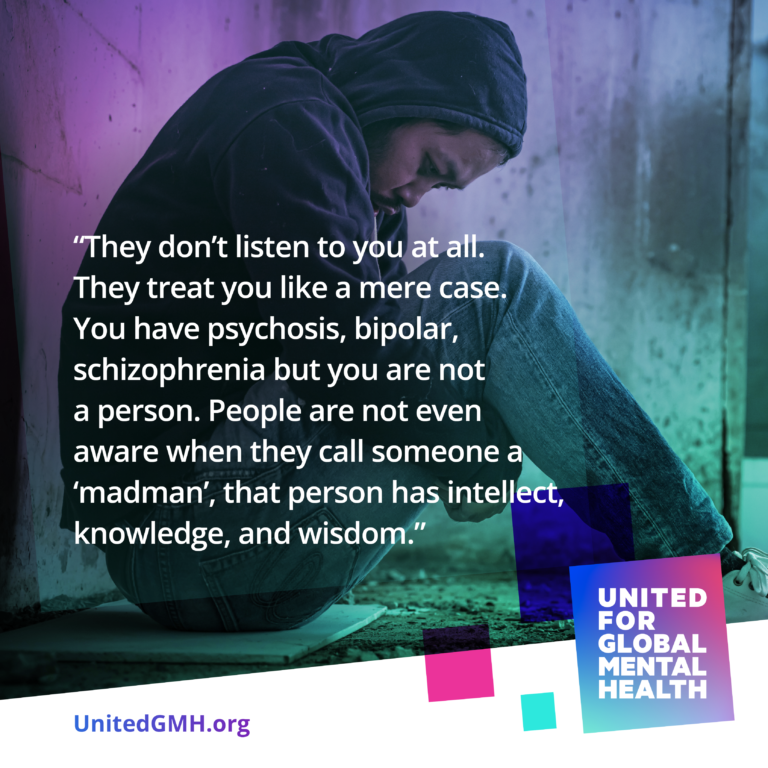Sentenced to Care: the experiences of people ‘out of sight and out of mind’ in mental health institutions
Hear from Ali Hasnain, our Policy & Advocacy Advisor, as we launch our new report on the human rights case for ending institutionalisation in mental healthcare.
The world holds more people in institutions for their mental health every year than it does individuals in prison for committing crimes. They can spend years in mental health institutions involuntarily, unable to speak up for themselves or have anyone speak up for them.
They are out of sight and out of mind and in far too many cases, their care feels more like a sentence.
So what are they being sentenced to? In some cases it is a lifetime away from their families and loved ones, locked away in a facility far removed from the community. In other cases it is physical, sexual and emotional abuse without any recourse for justice. People are restrained, shackled, chained, at times overmedicated and treated without dignity. The living conditions in institutions are poor with neglect, malnutrition, dilapidated facilities and understaffing being far too common.

Once out of institutions, people are sentenced to exclusion from a normal life in their communities, facing stigma, being cast as dangerous, dealing with discrimination in employment opportunities and in too many cases, having nowhere to go and no family to return to.
Care givers, whether they be family or members of the mental health workforce in institutions are also being sentenced to a life of stigma, guilt, difficult conditions under which they must provide care and inadequate understanding or support for their own mental health.
None of these voices are currently being sufficiently heard. Our flagship report ‘Out of Sight, Out of Mind – the Human Rights Case for Ending Institutionalisation in Mental Healthcare’ changes that by amplifying the voices of people with lived experience of institutionalisation, their carers and the organisations working to support them. It brings their troubles to life and captures their recommendations for what change should look like.
The report also covers the expert guidelines of the WHO, UNCRPD and other UN bodies on the subject and features case studies of successful implementation of reforms in countries like Sri Lanka, Lebanon, Brazil and many others.
The report is merely the first step towards the launch of a wider global campaign to end institutionalisation. Only recently, at the World Health Assembly, governments from around the world gathered at the Office of the High Commissioner of Human Rights for a side event specifically on moving away from institutions.
This shows that there are champions emerging at the global level and getting involved at the national level is as simple as reading the report and joining the Global Mental Health Action Network which will, in September, have a dedicated task group on ending institutionalisation.
Care should not feel like a sentence but rather should be about recovery, about safeguarding human rights, about putting the person at the heart of their own wellbeing and about making sure support is available in communities. It should be about eliminating stigma and discrimination and recognising that while some of us may have different life experiences, we are all people and we all deserve the same type of care and the same level of opportunities.
Join us on this campaign to build such a world.